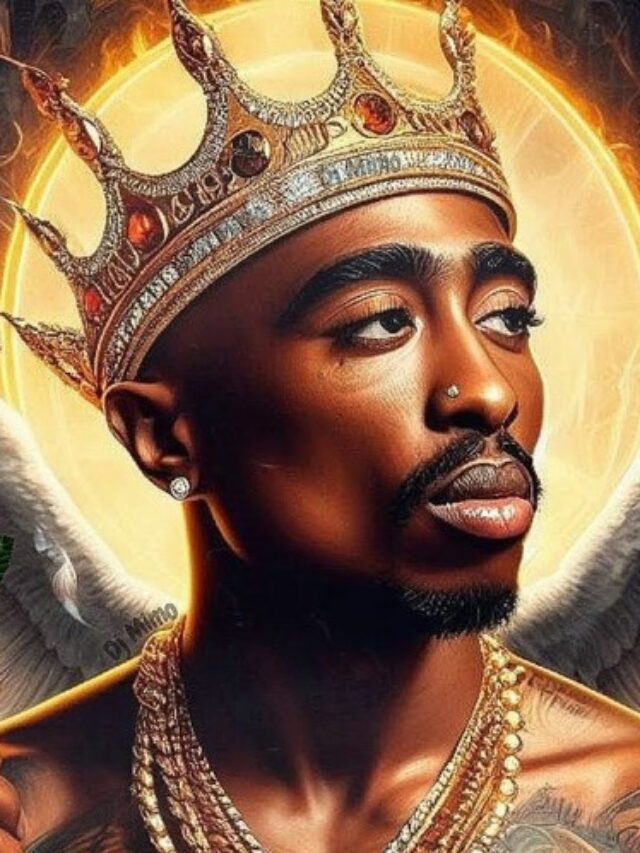Introduction
June 16th marks the birthday of one of the most influential figures in music and pop culture, Tupac Shakur. Known to the world as 2Pac, Tupac’s legacy extends far beyond his musical prowess. He was a poet, actor, activist, and an emblem of resilience and authenticity. Today, we celebrate the journey of how Tupac became more than just a rapper—how he evolved into a cultural icon whose voice resonates with generations.
1. A Revolutionary Name and Early Struggles
Tupac Amaru Shakur was born in New York City on June 16, 1971. His name itself was a harbinger of the life he would lead. Named after Túpac Amaru II, a South American revolutionary, Shakur carried the legacy of resistance and rebellion from birth. Growing up amidst the turbulence of Harlem and the Bronx, his early life was marred by poverty and instability. However, these struggles only served to fuel his drive and inform his worldview, laying the foundation for his later activism and musical themes.
2. From Backup Dancer to Rising Star
Tupac’s foray into the music industry began as a backup dancer and rapper with the group Digital Underground. This initial experience provided him with a crucial understanding of the industry and a platform to showcase his talent. His debut album, “2Pacalypse Now” (1991), introduced the world to a raw and introspective artist. Tracks like “Brenda’s Got a Baby” tackled complex societal issues such as teen pregnancy and systemic neglect, instantly setting him apart from his peers.
3. A Force on the Silver Screen
Beyond music, Tupac’s talents extended to acting, where he made a significant impact. His breakout role in “Juice” (1992) as Bishop, a troubled teen, demonstrated his ability to portray complex characters with depth and authenticity. This success paved the way for other notable performances in films like “Poetic Justice” (1993) alongside Janet Jackson. His presence in Hollywood showcased his versatility and solidified his status as a multifaceted entertainer.
4. Activism and Advocacy
Tupac’s upbringing was heavily influenced by his mother, Afeni Shakur, a former Black Panther. This background instilled in him a profound sense of political awareness and a commitment to activism. He used his platform to address pressing issues such as racial inequality, police brutality, and systemic injustice. Through his music and public appearances, Tupac became a voice for the marginalized, advocating for social change and speaking out against oppression.
5. Creating Iconic Music
Tupac’s discography is a testament to his artistry and his ability to connect with listeners on a deep, emotional level. Albums like “Strictly 4 My N.I.G.G.A.Z.” (1993) and “Me Against the World” (1995) resonated with their introspective lyrics and potent social commentary. Hits like “California Love,” “Dear Mama,” and “Changes” highlighted his range, from celebrating West Coast culture to reflecting on personal and societal struggles. His ability to fuse hard-hitting commentary with mainstream appeal cemented his place in music history.
6. Legal Battles and Controversies
Tupac’s life was fraught with legal troubles and controversies, which often overshadowed his artistic achievements. From numerous arrests to a highly publicized prison sentence in 1995, these challenges only fueled his “thug life” persona. Yet, he used these experiences as material for his music, offering unfiltered glimpses into his reality and maintaining a prolific output despite the adversities.
7. The East Coast-West Coast Feud
The mid-1990s were dominated by the infamous East Coast-West Coast feud, with Tupac at the center of the storm. His rivalry with The Notorious B.I.G. and Bad Boy Records became emblematic of a larger conflict within the rap community. Songs like “Hit ‘Em Up” were not just diss tracks; they were declarations of loyalty and defiance. This feud, while contributing to his mythos, also underscored the dangers and volatility of the rap scene at the time.
8. An Enduring Legacy
Tupac’s untimely death in 1996 at the age of 25 was a profound loss to the music world. However, his legacy has only grown in the years since. His music continues to influence new generations of artists, and his message of resistance and resilience remains relevant. Tupac’s ability to articulate the struggles of his community and his unwavering dedication to truth and justice have cemented his place as a cultural icon.
Famous Quote: A Testament to His Impact
“I’m not saying I’m gonna change the world, but I guarantee that I will spark the brain that will change the world.” — Tupac Shakur
This quote encapsulates Tupac’s vision and belief in the power of his influence. He understood the potential of his words and the impact they could have on future generations, a prophecy that continues to unfold.
Conclusion
As we celebrate Tupac Shakur’s birthday, we honor a man whose life and work transcended music to become a symbol of defiance, creativity, and hope. From his early struggles to his rise as a rap legend, Tupac’s journey is a testament to the power of authenticity and the enduring impact of a single voice in sparking change. His legacy remains a powerful reminder of the potential within us all to make a difference and leave a lasting mark on the world.
Happy Birthday, Tupac. Your voice still resonates, and your spirit continues to inspire.
This blog post not only highlights Tupac’s incredible journey from 2Pac to a cultural icon but also serves as a tribute to his lasting influence on music, activism, and beyond.
